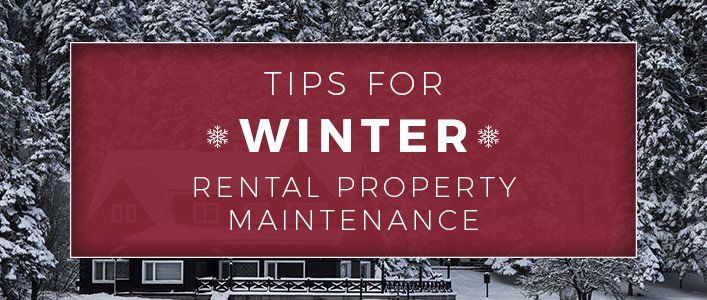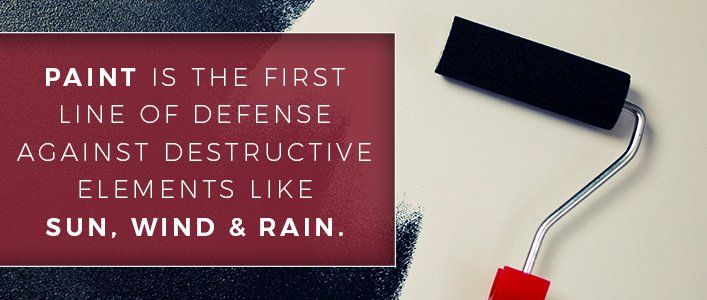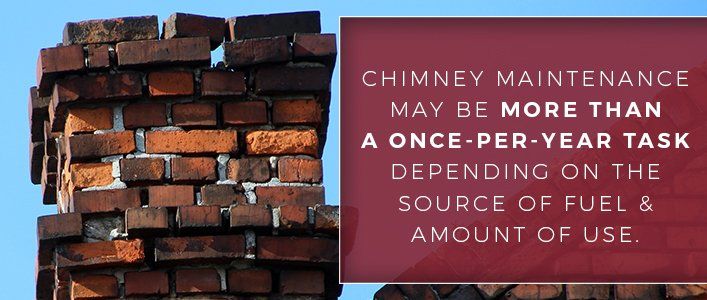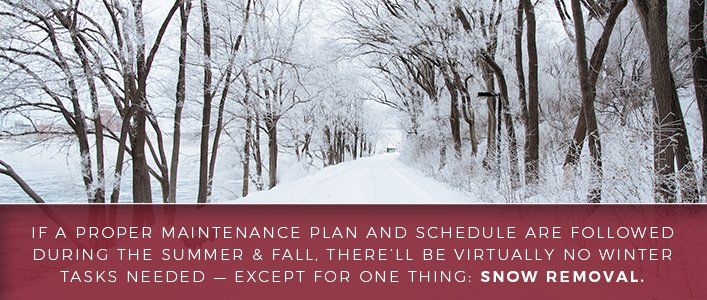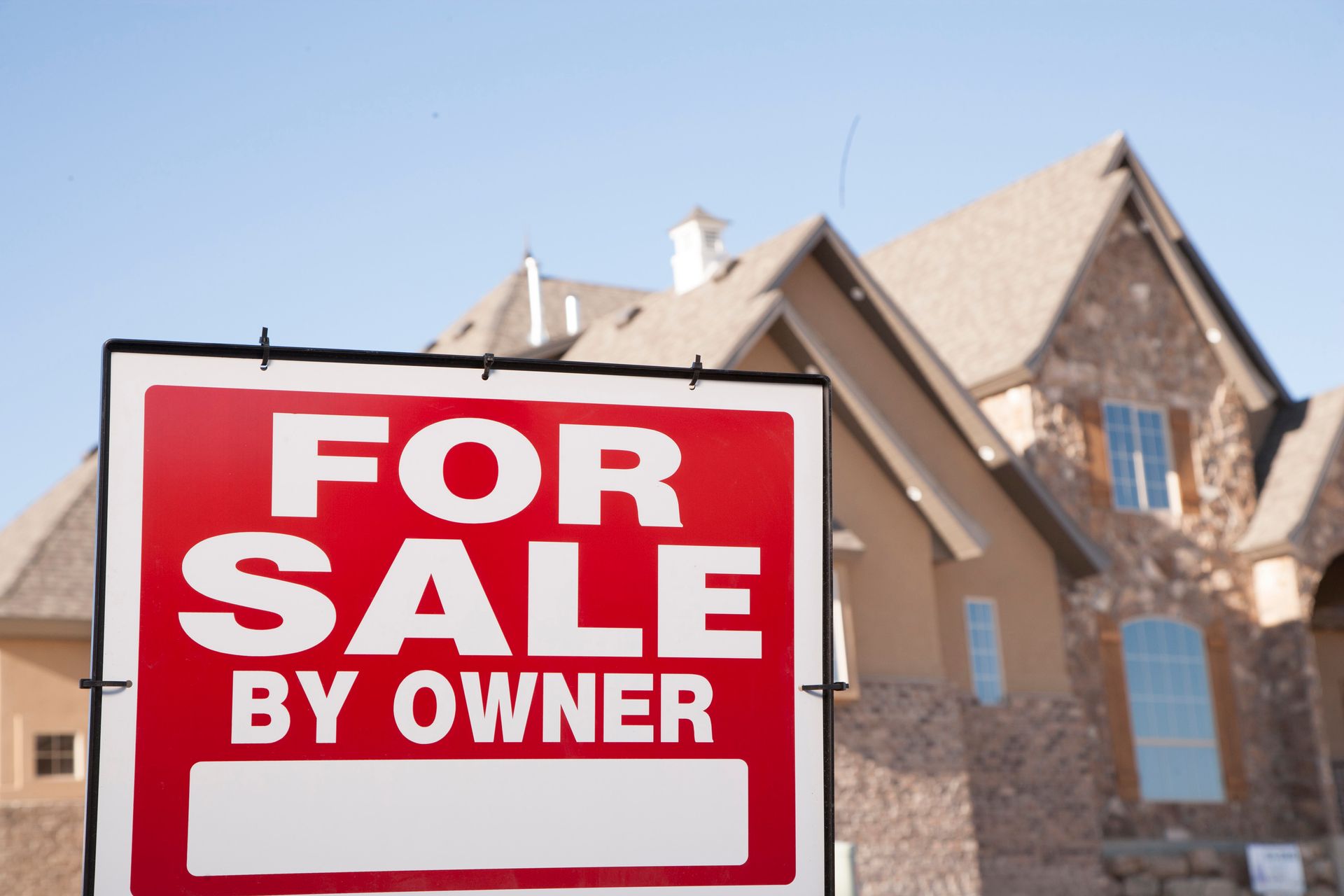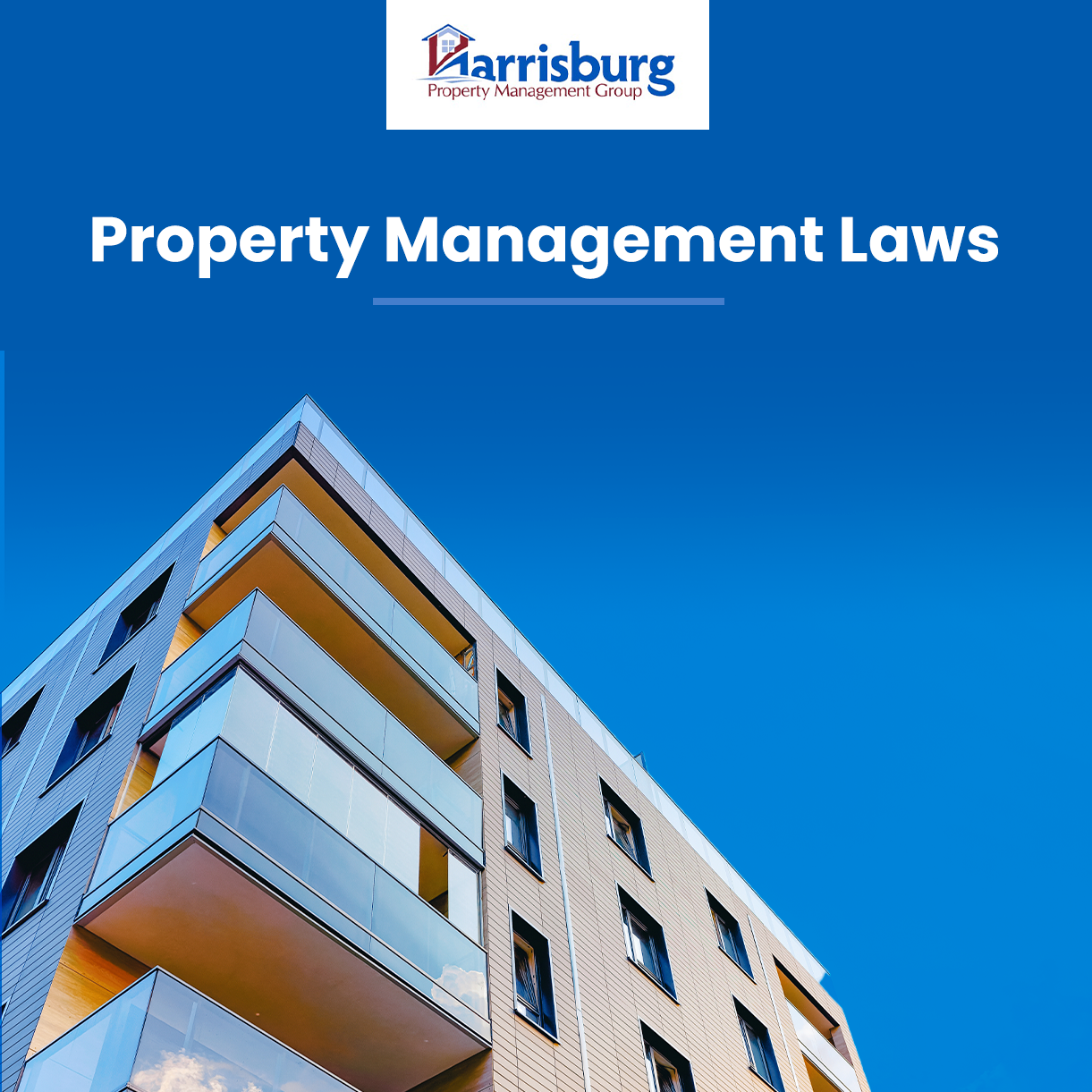Keep Your Property In Shape | Year Round Maintenance Guide
Year Round Property Maintenance Guide
“An ounce of prevention is worth a pound of cure.”
We’ve all heard the cliché that’s been tossed around for ages. But when it comes to preventive maintenance on rental properties, especially in preparing for the oncoming cold season, it’s almost impossible to find a better line. Nowhere is an ounce of prevention more fitting than when it comes to winter rental property maintenance.
Maintenance on rental properties is a continual process, regardless of the season. However, winter always throws extra wear and tear at buildings. Smart owners approach this snowy and icy time with a winter rental property maintenance plan. That includes a winter rental property maintenance schedule and a list of tasks that can be managed as the seasons change.
Avoiding problems that come with winter is an ongoing process. It’s absolutely necessary to keep on top of small details so they don’t become big issues down the road. Regular inspections and an organized winter property maintenance schedule are easy to manage as long as tasks are planned out in advance and you keep prevention in mind.
The time and money spent in routine maintenance and preparation for the changing seasons will pay back enormously in long-term cost savings and reduction of headaches. Proper seasonal maintenance of rental properties needs the same care and attention as a principal residence. Not only is it good business practice to keep on top of rental property maintenance, but it’s also cost-effective. Properly scheduled maintenance actually lowers maintenance costs and ultimately extends the property’s life.
Too many property owners approach their maintenance tasks on an as-needed basis, often waiting until something breaks, leaks, jams, freezes or colossally fails before making a fix. Others simply have a twice-yearly go at the tasks, usually in the spring and the fall. But the prudent rental property owner or manager sticks to a plan with a year-round, structured schedule. These properties ultimately show the care that comes from maintenance. It reflects not just in the appearance and performance of the property but also in tenant satisfaction and the respect they, in turn, show for their home.
Here are some ounces in preventive maintenance that can be done seasonally and will pay back in pounds of cost savings and property life.
Summer Tasks
Summer is the time to take advantage of the warm and dry weather. It’s going to be easier to move about the property, especially inspecting the roof or upper elevations of the building. This means being more thorough, not to mention a lot safer.
Painting
Painting accomplishes much more than adding to the appearance of a property. Paint is the first line of defense against destructive elements like sun, wind and rain. Most of today’s paints are water-based latex or acrylics, and they work best when being applied to warm, dry surfaces.
The nature of paint, rather than stain, is that it forms a protective coat on the surface of the material and doesn’t soak right into the fibers or pores. When applied to a wet and cold surface, paint never gets a chance to set properly and remains tacky. Also, the trapped moisture under the paint film will try to escape once the temperature warms and the humidity drops. This causes blistering and peeling, which ruins the surface and wastes all the time and money it took to apply the paint.
Take advantage of the warmth and long days in summer to keep ahead on painting projects. It may be a bit of trim that needs upkeep or a new project that’s added onto the building. Waiting until the weather changes, the dew point drops and the natural light is sparse is counterproductive when the job could’ve been done in the right season.
Roofing
Keeping an eye on the roof is mandatory, particularly for older properties. Depending on the product, most roofing shingles have an approximate 20-year lifespan. Roofs are forgiving components, thankfully, and give plenty of warning before they fail. By getting up on the roof every summer and inspecting, any developing problems will become evident.
Watch for curling, cracking and missing shingles as well as granules that are dislodging. These are sure signs of deterioration and are indicators that a major expense will be due sooner rather than later. Replace the shingles or anchor them with appropriate fasteners. Additionally, watch for flashing problems. Flashings are susceptible to wind and wind-driven rain. Any bent, damaged or missing flashings must be attended to before the harsh winter weather returns.
Summer is also the best time to have a roof replaced. Most re-roofs take about one week. During that time, the building is seriously exposed to the elements. Winter is not the time to be roofing when any repairs could’ve been done in the safe, warm weather.
Structural Repairs
At some point, rental properties always need some form of structural attention. It might be a sinking deck support or rotting fence posts. Maybe it’s a staircase that’s had its day or a foundation that’s sprung a leak. Or, it could be gutters that are sagging or just a loose handrail. Whatever the task, summer is the proper time to look after anything that’s exposed to the weather and bound to get worse as winter arrives.
Yard Maintenance
Large maintenance projects around the yard are best suited for the summer. This might be pruning limbs on trees that are threatening to detach and strike the house — or an occupant — come the winds of winter. Hedges might need trimming, invasive root systems might need curbing and shrubs might need cutting back or removing.
The weight of winter snow can severely damage or destroy plants that haven’t been attended to. The cost of repair and replacement after a long winter season can be avoided if these landscape tasks aren’t neglected before winter arrives.
Water control is a major issue in all properties. Poor drainage or pooling of water against a foundation or along an access way is a ticket to trouble once the wet season turns to cold and makes dangerous ice in these spots. Soft, pliable ground in the summer is far easier to work if drain pipes or tiles need installing.
Summer is the perfect season for any flatwork projects that need undertaking. That could be concrete poured for a walk or pad, a new foundation set under the deck or likely some preventative grading to keep water flowing away from the building and not attacking the interior when seasons change.
Think of summer as saving. Saving time. Saving money. And saving trouble when winter hits.
Fall Tasks
Fall is the busiest preventive maintenance season. While summer is the time to attack the big projects, fall is when the little issues can be identified, addressed and alleviated before the snow falls.
Insurance
Don’t just think of fall maintenance as insurance against winter issues. Fall is the time to make sure the property insurance policy is current and addresses all the details, like weather damage and tenant protection.
Remember that insurance policies don’t cover maintenance issues. They cover what happens when maintenance isn’t done or nature causes something that’s unforeseen. Preventive, seasonal maintenance is the proper insurance against having to collect on a policy. And remember: somewhere in that fine print, the insurance may be void if neglect can be demonstrated.
Safety Devices
Another insurance policy for a rental property is the building’s safety devices. Make sure that smoke alarms and carbon monoxide detectors are tested and the batteries are changed. If there’s a burglar alarm system in place, test that too. Contact the monitoring company and confirm they are receiving signals and that the contract is in good standing.
Never take fire suppression systems for granted. This could be as simple as fire extinguishers that need recharging or a sprinkler system that needs yearly certification.
Locks are also a safety device. Check each lock for wear, tear and binding. A small amount of lubricant like WD40 is quick insurance against a stuck lock and a call out in the dead of December. And don’t overlook the automatic garage door opener. Run it several times and watch for alignment of the drive and photocells.
Gutters
Maintenance of roof gutters or the eave troughs is probably the single most important fall maintenance job out there. Leaves, needles, branches and grit all collect in the gutters. If it’s not removed or flushed out, these obstacles will form a solid dam and trap running roof water, causing it to spill out and over the walls.
A backup from clogged gutters can also create ice dams once it freezes. This can be serious and result in loose roofing or rotten roof sheathing. Gutters can only be properly cleaned by getting up and getting the crud out. This is not a job for bad weather.
Chimneys
Chimney maintenance may be more than a once-per-year task depending on the source of fuel and amount of use. Wood burning fireplaces cause greater residue in the form of soot and creosote than oil furnaces or natural gas appliances.
Chimney sweeping is an honorable profession that goes back to Victorian times, and for good reason. This is a dirty, specialized task that may be best sub-contracted out. Regardless of who sweeps the chimney, it’s a critical part of rental property maintenance and must be done before the heat is turned up once it’s winter.
Furnaces and Air Conditioners
Fall tune-ups of furnaces are a regular task to be checked off the maintenance list. Filters will need cleaning or replacing. Ducts might need vacuuming. Oil tanks could require cleaning and the connections inspected. And boilers should be serviced if they’re part of the heating, ventilation and air conditioning system.
No HVAC servicing is complete without inspecting the air conditioner. Filters and refrigerant might need attention, and those summer-only window-mounted units should be removed and stored until the spring.
Water Lines
Nothing will wreak more winter problems than frozen — or worse, burst — water lines. First on the fall maintenance tasks should be turning off the exterior water supply, disconnecting the hoses and draining the hose bibs.
This includes blowing out landscaping irrigation systems and making sure any metering devices or surface-lying water lines are covered and properly insulated. Pay attention to where the water line enters the building, as that short space from the cold to the warm is an instant freeze zone. A bit of pipe-wrap or other insulation adds to the winter insurance plan.
Insulation
Fall is the right time to address any other insulation issues. Maybe an increase in the attic’s R-Value, or some extra batts in the crawlspace to protect the box-ends and floor.
Drafts are a winter curse and cause icing around door thresholds and window jams. Fall is the right time to adjust door sweeps and add caulking or spray-foam to holes where winter chills sneak through. Storm windows are a thing of the past for most homes today, but older properties with single-pane windows may benefit from a winterizing shrink-wrap applied to the glass.
Yard Pickup
One of the last chores before the snow dumps on the yard and covers it is picking up everything that might get hidden. Scattered obstacles are hazards to those walking around the property, and they might be needed to maintain the property.
This could be garden tools, machinery, ladders, hoses, yard furniture, barbecues and even snow scrapers and shovels. Store these safely away where they can be found and survive the winter without damage from the elements, and where they can’t cause unfortunate accidents.
Winter Tasks
If a proper maintenance plan and schedule are followed during the nice months of summer and fall, there’ll be virtually no winter tasks needed — except for one thing: snow removal.
Snow is inevitable with winter in most of the country, especially in the northern parts of America like Pennsylvania. Shoveling, scraping or blowing snow goes with the territory. Snow removal is a winter maintenance task that has to be done. However, it’s often a question of responsibility.
Who has to do the winter snow removal maintenance?
That’ll likely be an agreement between the landlord and the tenants, although some jurisdictions may legislate the responsibility. It shouldn’t be necessary for the authorities to step in when it can be worked out amicably as part of the landlord-tenant agreement.
Tasking With Tenants
Tenants should be an important part of the year-round rental property maintenance plan. Spelling out whose tasks are whose leads to a clear understanding of what to do and when. A responsible landlord also looks for responsible tenants who’ll cooperatively do some of the minor tasks that inevitably need to be done before the little things become big.
Responsible tenants could be the biggest insurance policy of all when they feel like part-owners, and are in a position to see problems developing. Possibly, a landlord-tenant to-do list may go along with the agreement, and a little seasonal incentive from the landlord will go a long way toward keeping the relationship warm over the winter.
Emergency Contact List
One last piece of rental property insurance is a list of instructions as to where critical components are located on the rental property and a schedule of emergency contacts. This should be posted where it can be easily found.
Here are some emergency contacts to include:
- Police, Fire, Ambulance (other than 911)
- Rental Property Owner
- Property Management Company
- Emergency Repair Company (Plumbing, Heating, Electrical)
- Restoration Company (Flood or Smoke Damage)
- Snow Removal Contractor
- Waste Removal Contractor
A final tip on maintaining a rental property is to work with a professional property manager. The founders of Harrisburg Property Management Group are also rental property holders with plenty of experience in property management, real estate investment and construction.
If you’re looking for reliable and professional property management in Harrisburg, PA, the Harrisburg Property Management Group delivers high-quality, comprehensive services. We have a critical understanding of the unique needs that rental property ownership requires. It’s not just theoretical know-how we’ve acquired — our staff has thousands of hours in full property renovations and have completed hundreds of property turnovers and real estate transactions.
Since 2011, Harrisburg Property Management Group has worked to become one of the top rental management companies in Central Pennsylvania, and we continue working hard to achieve the highest quality standards and to deliver reliable service.
Contact us today or call 717 564-RENT.
Subscribe for Property Management
Tips and Secrets
Subscribe for Property Management
Tips and Secrets
Carlisle | Camp Hill | Harrisburg | Hershey | Lebanon | Mechanicsburg | York | Annville | Cleona | Elizabethtown | Linglestown
Boiling Springs | Steelton | Middletown | Hummelstown | Palmyra | Hanover | Dover
://www.564rent.com/mechanicsburg
https://www.564rent.com/mechanicsburg
https://www.564rent.com/mechanicsburg
4411 North Front StreetHarrisburg, PA 17110


